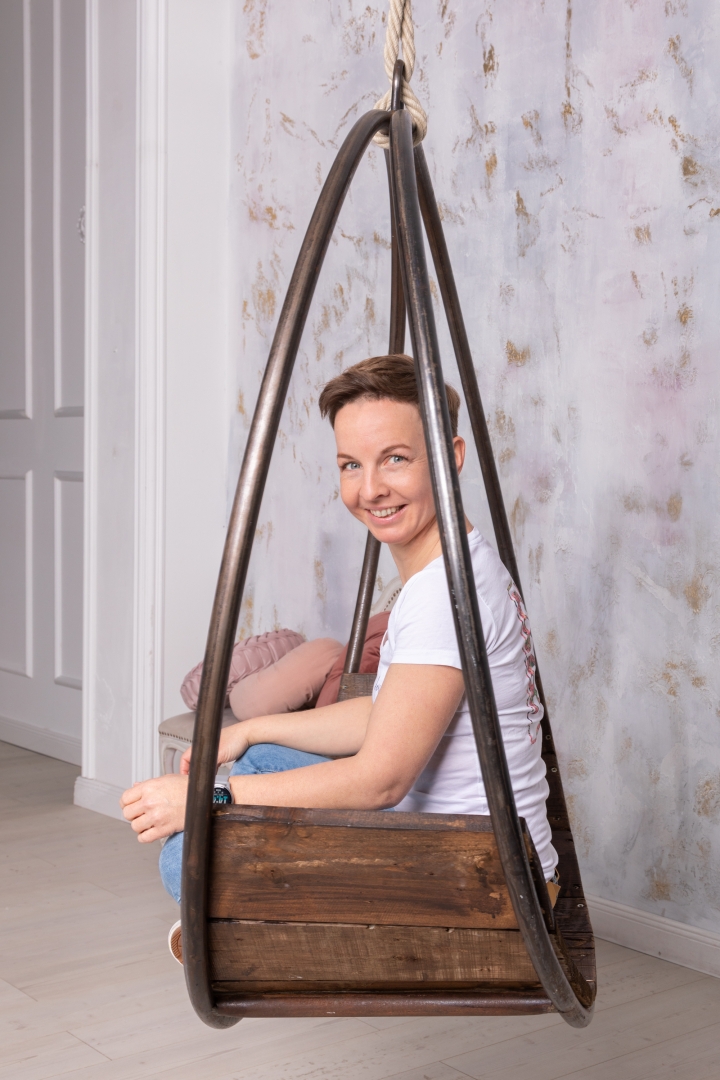We recently crossed the 100 organizations where we've worked on development. This doesn't include individual coaching processes, and we do about 800 of those per year. And in none of them have we ever encountered a top leader/owner who hasn't said the sentence above.
What I would expect is an owner's mindset.
But who exactly are they expecting it from? We haven't had a bakery analogy in at least two years, so it's time to bring up a 200-person bakery. If you work in a 10,000-person organization, the same thing will happen, only more people will be expected to do it.
The owner comes in on Mondays and Fridays. He walks around your area, washes two tables with you, pats you on the back, and then goes to the office. You work in the kitchen for two years, then you're appointed as a group leader, and five bakers report to you. You're still in the kitchen, but now you also wash a table before the owner comes in. He doesn't always come on Tuesdays, but he does on Mondays, so you have an owner's mindset on Monday. You could proudly say that, and you'd be right.
You work as a group leader for two years, and since you're still fantastic, they move you to the office and make you a senior purchaser. You review contracts, argue with suppliers, argue with the group leaders you left behind about what butter was delivered instead of what you ordered, and whose fault it was. You know that you have to change suppliers, even if the others don't want to, because the math doesn't add up.
You now have an owner's mindset on Mondays and Tuesdays as well. On Fridays, you let them order from the old supplier for another year and a half because you want to accommodate the others, and you know the previous supplier was genuinely better. You also know that if you stay in the same position, either they won't notice (and they won't), or when they do, you'll deactivate the old supplier in the system and argue with the others. But not until then.
Because you want to satisfy them too. Properly.
Another two years, and now you're leading the procurement, and only the CEO is above you. You see what your purchasers are doing, and you know why. You see what the CEO is doing, and you know why.
And when you really have to fire the old butter supplier because they're asking for as much money as there are grains of sand in the world for what they deliver in a year, you know that the others are right, and the contract is also right, and you fire the old supplier.
Do you have an owner's mindset?
Yes.
Do they hate you for it?
Yes.
Does the owner at least rejoice?
Well...
If he noticed that the HappyYellowAlwaysTheSameButter Ltd. is still there, then no. He's pissed off. Years ago, he said we couldn't afford it. If he didn't notice, then you don't fire the supplier.
And why not? Because the owner isn't necessarily right in this case, just has an owner's mindset.
However, if you are actively leading the company, you will strive to be right, from both a top-down and bottom-up perspective. And you won't be able to eliminate this duality from the organization in real life.
But you don't have to.
As an owner, you should strive for an employee perspective, and as an employee, you should strive for an owner's perspective. Eliminating the dynamic that causes tension, well, that won't happen.
Because then we'll either never have good butter or, in the end, no one will care what butter we use to make the bread.
Then you'll complain that no one cares about producing quality work.
Perhaps what's missing is the owner's perspective. :)
 Dorottya Nagy-Jozsa PCC
today
2025-11-06
Dorottya Nagy-Jozsa PCC
today
2025-11-06
 Dorottya Nagy-Jozsa PCC
Dorottya Nagy-Jozsa PCC